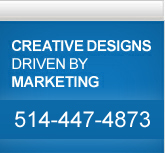A
| B | C
| D | E
| F | G
| H | I
| J | K
| L | M
| N | O
| P | Q |
R | S
| T | U
| V | W
| X | Y |
Z
F
Face: One of the styles of a family of faces.
For example, the italic style of the Garamond family is
a face.
Facing pages: In a double-sided document, the two
pages that appear as a spread when the publication is
opened.
Family: Also known as a font family. A collection
of faces that were designed and intended to be used together.
For example, the Garamond family consists of roman and
italic styles, as well as regular, semi-bold, and bold
weights. Each of the style and weight combinations
is called a face.
Fan fold: Paper folding that emulates
an accordion or fan, the folds being alternating and parallel.
Fat face: Type that is quite varied in
its use of very thin and very wide strokes.
Feather: To insert small amounts of additional
leading between lines, paragraphs, and before and after
headings in order to equalize the baselines of columns
on a page.
Filling in: A fault in printing where
the ink fills in the fine line or halftone dot areas.
Film coat: Also called wash coat; any
thinly coated paper stock.
File Format: A file format defines how
an application stores information in a file. When you
name a file, an application automatically appends a filename
extension, usually three characters in length; for example,
.cdr, .bmp, .tif, and .eps. This filename extension helps
you and the computer differentiate between different file
types or file formats.
Finish: The surface quality of paper.
Fit: The registration of items within
a given page.
Filter: The name for an application that
translates digital information from one form to another.
FlashPix (.fpx files) file format: Originally
designed by Eastman Kodak Company, is a bitmap format
used mostly for digital photographs. It provides the ability
to store several resolutions of an image in the same file.
It also supports digital watermarks.
Flat: The assemblage of negatives and
positives that are used as a composite image to create
the printing plate.
Flyer: A one-sheet advertisement that
is usually inexpensively produced.
Flush: A column of type aligned vertically
either on the left and/or right side. Includes flush right,
flush left or flush right and left, which would be called
"justified."
Flush left: Text that is aligned on the
left margin is said to be set flush left. If the same
text is not aligned on the right margin, it is said to
be set flush left, ragged right. The term ragged right
is sometimes used alone to mean the same thing.
Flush right: Text, which is aligned on
the right margin, is said to be set flush right. If the
same text is not aligned on the left margin, it is said
to be set flush right, ragged left. The term "ragged
left" is sometimes used alone to mean the same thing.
Foils: Papers that have a surface resembling
metal.
Folio: A page number, often set with running headers
or footers.
Font: A set of characters in a specific typeface,
at a specific point size, and in a specific style. "12-point
Times Bold" is a font -- the typeface Times, at 12-point
size, in the bold style. Hence "12-point Times Italic"
and "10-point Times Bold" are separate font
Font family: Also known as family. The collection
of faces that were designed together and intended to be
used together. For example, the Garamond font family consists
of roman and italic styles, as well as regular, semi-bold,
and bold weights. Each of the style and weight combinations
is called a face.
Format: The shape or style of a print
piece (i.e. a brochure vs. booklet) or the type of communication
used (i.e. a website, video or brochure).
Four-color process: The four colors of ink used
by an offset printer to create the entire spectrum of
colors. The process colors are Cyan, Magenta, Yellow and
Black (often abbreviated to CMYK). The printer makes a
separate press plate to print each color. Together the
four colors blend to reproduce the art as it appears.
